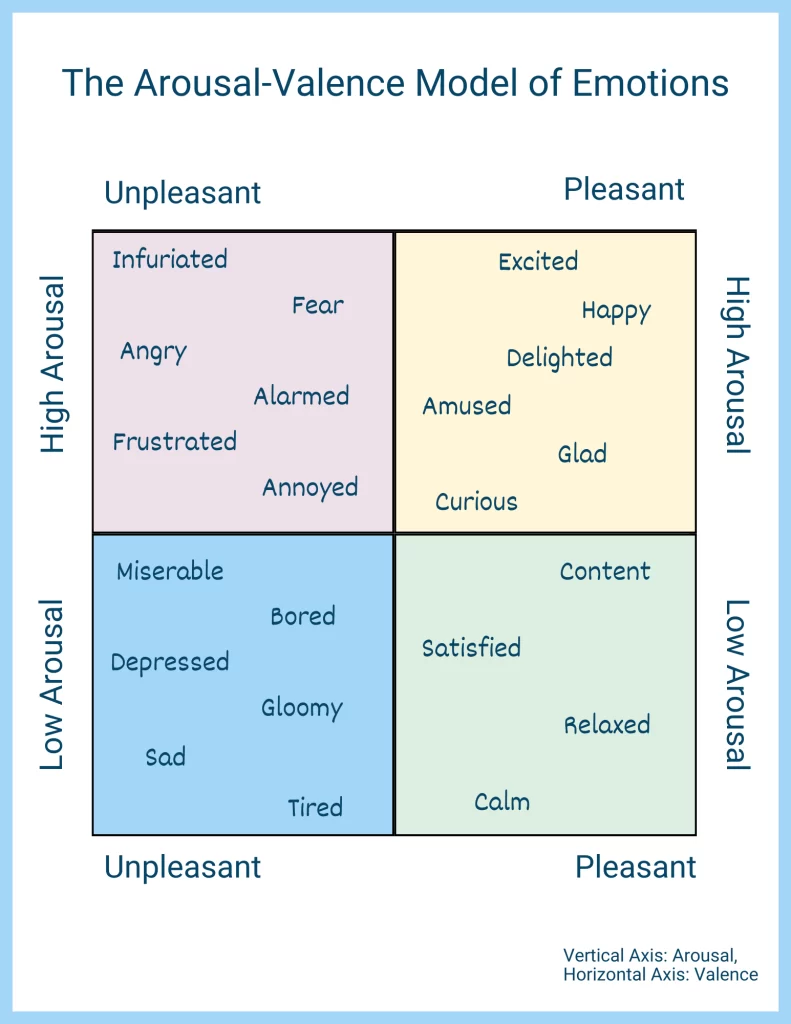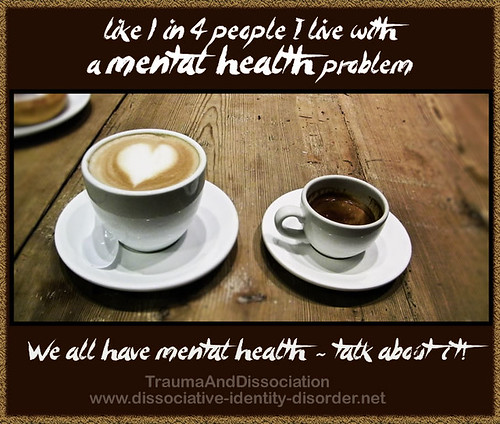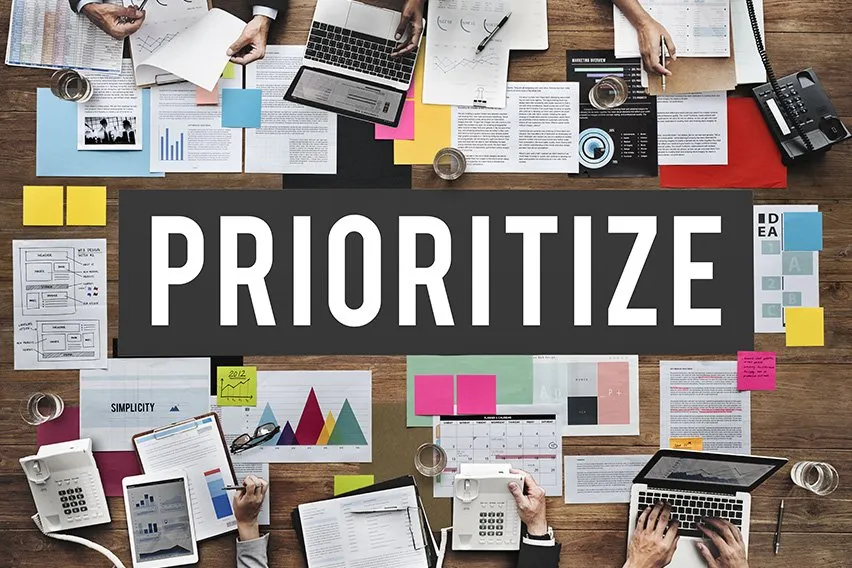
You’re lying in bed, trying to unwind, when suddenly, a familiar rumbling begins. No, it’s not your pet; it’s your stomach, signaling that 11 PM is, apparently, the perfect time for a snack. This experience of late-night hunger is incredibly common, leaving many of us frustrated and debating whether to raid the fridge or try to ignore the persistent gnawing feeling.
Beyond the immediate annoyance, this nocturnal craving can have real consequences for our well-being. It can disrupt the precious sleep we’ve worked hard for, especially when accompanied by uncomfortable digestive sensations. For those on a weight loss journey, giving in to these midnight urges can unfortunately undermine the diligent efforts made throughout the day and even throw our digestion out of whack.
But what if you could understand *why* this happens? Instead of fighting the urge or feeling guilty, getting to the bottom of these late-night hunger pangs can empower you to curb those cravings effectively and reclaim your peaceful sleep. Let’s dive deep into the various factors that might be fueling your desire to eat after dark, offering insights grounded in scientific understanding and expert observations.

1. Inadequate Daytime Fueling & Irregular Eating Patterns
One of the most straightforward and common reasons for feeling ravenous late at night is simply not consuming enough food, or the right kind of food, during your waking hours. It might seem logical to skip breakfast or drastically reduce calorie intake in a bid to lose weight, but this strategy often proves counterproductive. As the context explains, “If we’re ignoring our body’s hunger cues during the day, we often end up overcompensating at night.” Your body is remarkably adept at ensuring its survival; as the context points out, “your body’s primary goal is to keep your heart, lungs, and other vital organs functioning properly.” When it doesn’t receive the necessary fuel, it will eventually demand it, often with increased intensity, later in the day.
This compensatory eating often occurs at a time when our resolve is at its lowest. By the end of the day, after hours of work and various demands, our energy levels and willpower are naturally depleted. The context notes that it’s “far more difficult to eat mindfully in front of the TV (which is what many of us are doing at this time).” This combination often leads to consuming more calories than intended and making less optimal food choices, typically gravitating towards “heavy carbs and high fat, sugary foods.” The reduced capacity for self-control at night means these choices are made more impulsively, hindering any progress made earlier in the day.
To counteract this, the key is to prioritize consistent and adequate fueling throughout the day. While you don’t necessarily need to adhere strictly to the traditional breakfast, lunch, and dinner schedule if it doesn’t align with your lifestyle, it’s generally “more beneficial to consume multiple, smaller meals during the day.” This approach helps to keep blood sugar levels stable, prevents extreme hunger from building up, and signals to your body that food is reliably available. By providing a steady supply of energy, you reduce the intense, primal urge to overeat later, ensuring your brain doesn’t dial up those “hunger signals until it gets the fuel (food) it needs.”

2. Nutritional Imbalances & Poor Food Choices
Sometimes, the sheer volume of food isn’t the issue, but rather its nutritional composition. If you find yourself experiencing “intense cravings for particular foods, such as something sweet or salty,” it might be your body attempting to communicate a specific need. You could be consuming plenty of calories during the day, yet still not feeling truly satisfied or nourished if your meals lack essential nutrients. These cravings often point towards deeper nutritional imbalances rather than just a desire for “more,” signaling that your diet might be “consuming plenty of calories during the day, but aren’t eating particularly satisfying meals.”
Consider the example provided in the context: “eating leafy salads for every meal is a great way to get your greens in. However, if you’re not consuming enough lean protein sources, you might find that you’re low in iron — which can leave you feeling hungry, and affect your sleep.” This illustrates how specific deficiencies can manifest as persistent hunger or cravings, even when your stomach feels full. Moreover, if your diet “does not contain enough whole fruits and vegetables, whole grains, and protein during the day,” this could be “a reason for your late night binges.”
Therefore, making “nutrient-dense foods” a priority is paramount. This means focusing on unprocessed foods rich in protein, fiber, and healthy fats. Proteins like chicken, fish, eggs, beans, and tofu are crucial for satiety, helping you feel fuller for longer because “protein helps release the fullness hormone.” Healthy fats from sources like avocados, nuts, and olive oil also play a role in appetite regulation. Fiber-rich foods such as vegetables, whole grains, and legumes not only slow digestion but also help “control blood sugar levels” and ensure that “dietary fiber slows digestion.” A “nutritionally balanced diet is important for feeling satiated,” ensuring your body receives all the vitamins and minerals it needs, thus mitigating the physiological drives for late-night eating.
Read more about: Are You Getting Enough of This? The Essential Vitamins Every Woman Over 60 Needs for Optimal Health and Longevity
3. Hormonal Fluctuations & Imbalances
Our bodies are intricate systems, and hormones play a pivotal role in regulating almost every physiological process, including hunger and satiety. The “hunger hormones,” ghrelin and leptin, are central to this delicate balance. Ghrelin, produced in the gut, acts as a signal to the brain, prompting us to eat. Conversely, leptin, secreted by fat cells, indicates when we are satisfied. When these hormones become imbalanced due to factors like poor sleep, chronic stress, or an unhealthy diet, they can wreak havoc on our appetite regulation, leading to intense food cravings even when we are physically full. The context notes that “hormonal imbalances can cause intense food cravings even when full.” For example, “a common issue in people with obesity is high leptin levels with leptin resistance, leading to constant hunger.”
As the evening progresses and our bodies prepare for sleep, there are natural “fluctuations in your hormones such as melatonin and cortisol.” Melatonin, the sleep hormone, increases, while cortisol, the stress hormone, typically decreases. However, disruptions in this natural rhythm, or chronically high cortisol levels, can profoundly “influence your appetite, resulting in a craving for high-calorie food.” These hormonal shifts can make it challenging to resist the allure of readily available comfort foods, as your body seeks quick energy or psychological comfort in response to these internal signals that are out of sync.
Another significant hormonal factor is insulin resistance. Insulin is the hormone responsible for regulating blood sugar levels. When cells become resistant to insulin, the body produces more of it in an attempt to maintain normal blood glucose. This imbalance or “insulin resistance can cause frequent hunger,” perpetuating a cycle where you may feel the urge to overeat despite consuming sufficient calories. This condition is a common thread in discussions about persistent hunger and weight management challenges, directly impacting how frequently and intensely you feel hungry.
The “stress hormone,” cortisol, particularly plays a critical role in late-night cravings. High cortisol levels, often experienced after “a day of stressful meetings, social interactions, or tough workouts,” stimulate hunger cravings. While this is a short-term adaptive response, prolonged elevation of cortisol can lead to continuous cravings, often for “comfort foods” that are high in sugar and unhealthy fats. These hormonal signals can be incredibly powerful, making it challenging to resist the urge to snack, especially as the day winds down and stress accumulates.

4. Emotional Triggers & Stress
It’s a common misconception that all hunger is purely physiological. In many instances, especially late at night, the sensation of hunger isn’t a true physical need for fuel, but rather an “emotional” one. During the hustle and bustle of the day, we are often “distracted by work and other obligations,” leaving little room to process our feelings. However, “when we have a moment to ourselves,” particularly in the quiet of the evening, “we can find ourselves reaching for food to process any emotions we’ve been ignoring — such as sadness, loneliness, and anxiety.” This is a key reason why emotional eating often takes hold after hours.
This phenomenon, known as emotional eating, becomes a coping mechanism. The act of eating, particularly comfort foods, can provide a temporary distraction or a fleeting sense of comfort when confronting uncomfortable feelings. Rita Faycurry RD, an experienced Registered Dietitian Nutritionist, elaborates, stating, “Emotional eating can become an unconscious habit, triggered by feelings such as stress, boredom, fear, anger or anxiety.” She adds that “even if your current binge eating episodes seem to be on auto-pilot now, they may have originated from past experiences tied to negative emotions.” This highlights how deeply ingrained and automatic these responses can become.
Beyond coping with negative emotions, food can also be used as “a reward.” The context notes that “using food as comfort due to childhood habits can lead to frequent binge eating, especially foods high in calories but low in nutrients.” This ingrained association can make it incredibly difficult to break the cycle of late-night snacking, as our minds equate eating with feelings of pleasure or accomplishment, rather than solely with nutritional necessity.
Emotional factors like “boredom, stress, and loneliness may lead you to eat as a way to distract yourself from the problems.” Over time, this repeated behavior can condition your body to expect late-night food intake, creating a powerful habit that is hard to break. The issue is exacerbated because “emotional eating often happens unconsciously,” meaning you might not even realize you’re eating for emotional reasons until after the fact. Recognizing these underlying emotional sparks is the first crucial step toward managing them and developing healthier coping mechanisms.
Read more about: 8 Iconic Movie Sidekicks Whose Problematic Antics Would Be Scrutinized by Today’s Audiences

5. Sleep Deprivation & Disrupted Circadian Rhythms.
The quality and quantity of your sleep have a profound, often underestimated, impact on your appetite and susceptibility to late-night hunger. When you experience “lack of sleep,” it can significantly “increase hunger hormones and cravings for high-calorie foods.” This isn’t just a feeling; it’s a physiological response. Sleep deprivation disrupts the natural balance of ghrelin and leptin, pushing your body to seek more energy, often in the form of quick, sugary fixes, to compensate for the fatigue.
Furthermore, the very act of “late-night eating habits” can interfere with your sleep schedule. As the Alzheimer Discovery Organization points out, “the timing of a meal can affect the production of hormones which are involved in stabilizing the sleep-wake cycle.” Eating heavy meals or substantial snacks too close to bedtime can make it “difficult falling asleep” because your body is busy with the strenuous process of digestion. This can also lead to discomforts like “heartburn,” further interrupting your rest.
This creates a detrimental “vicious cycle.” When you have “a poor night’s sleep,” it “can also lead to an increased appetite” the following day. This increased hunger, driven by hormonal shifts and fatigue, makes you more likely to “overeat the next day, too,” potentially setting the stage for another round of late-night cravings. Breaking this cycle often requires addressing both your eating habits and your sleep hygiene simultaneously.
The negative influence extends to brain function as well. “Craving can also influence the functioning of the brain negatively.” When your sleep is disturbed, your brain’s ability to accurately perceive “natural hunger and satiety cues” is compromised. This means you might not recognize true hunger or fullness effectively, making you more prone to eating out of habit or emotion rather than actual physical need, further entrenching the pattern of late-night snacking.

6. Underlying Health Issues & Medications
While many instances of late-night hunger can be attributed to lifestyle or emotional factors, it’s crucial to recognize that sometimes, a persistent and intense urge to eat — “especially if it’s waking you up during the night” — can be “a sign that your body isn’t functioning optimally.” This isn’t something to overlook; it suggests that there might be an underlying health concern that needs professional attention. It underscores the importance of listening to your body’s more extreme signals and seeking expert advice for proper diagnosis and management.
Several specific health issues can contribute to these profound nocturnal cravings. “Poor thyroid function is a health concern that can lead to nighttime hunger, as this butterfly-shaped gland plays an important role in regulating your appetite [3].” Other conditions include “autoimmune diseases, adrenal fatigue, and insulin resistance [4],” all of which can disrupt the body’s metabolic and hunger-regulating processes. In such cases, the context suggests that “medically-based treatments like the Juniper Programme can target these underlying causes and help stabilise your appetite,” offering a path to addressing the root problem.
Beyond chronic health conditions, certain “medications may trigger binge eating” by influencing appetite throughout the day. Some prescriptions, such as “antidepressants, antipsychotics, and corticosteroids,” are known to suppress appetite during daylight hours, altering your natural hunger cues. Similarly, “some ADHD medications also reduce your appetite.” The challenge arises “when the effect of the medication or appetite suppressant eventually wears off,” often at night, causing hunger to “return with a vengeance,” potentially leading to binge eating as the body tries to catch up.
This effect is not exclusive to prescription drugs; various common “appetite suppressants” can also play a role. These include widely used substances like “Coffee, Green tea, Flaxseeds, Water, Tobacco,” and even modern “Weight loss drugs like Ozempic, Wegovy, or Mounthin.” While these can help manage appetite for a period, their waning influence can leave you “feeling extremely hungry” later in the evening or night, thus contributing significantly to the conundrum of late-night cravings. Identifying these factors with a healthcare professional is a vital step in addressing persistent nighttime hunger.
Now that we’ve shed light on the myriad reasons why those late-night hunger pangs strike, it’s time to pivot from understanding to action. Knowing the ‘why’ is a powerful first step, but the true transformation comes from implementing effective strategies to manage and curb these cravings. The good news is that many solutions are within your reach, focusing on balanced eating, healthy routines, and nurturing your emotional well-being. Let’s delve into six actionable strategies that can help you reclaim your nights and achieve your health goals, ensuring you go to bed feeling satisfied, comfortably full, and proud of your progress.
Read more about: Anna Nicole Smith: Unraveling the Tragic Saga of a Hollywood Icon’s Rise and Fall

7. Prioritize Nutrient-Dense, Balanced Meals and Mindful Eating
One of the most foundational strategies to combat late-night hunger is to establish consistent, well-balanced eating patterns throughout your day. The context emphasizes, “You must give priority to balanced meals throughout the day. Start having regular meals.” This approach ensures your body receives a steady supply of energy, preventing the extreme hunger that often leads to overeating in the evening. As a proactive measure, preparing “a hearty breakfast” can be particularly effective, helping “to keep your blood sugar levels normal and discourage you from excessive eating ahead of the day.”
Beyond just regular timing, the *quality* of your food intake is paramount. Focus on consuming “nutrient-dense foods,” which means prioritizing “unprocessed foods that are rich in protein, fiber, and good fats.” These essential components are not only packed with vital vitamins but also contribute significantly to satiety, helping you feel fuller for longer. For instance, lean protein sources such as “chicken, fish, eggs, beans, tofu” are critical for sustained fullness, while healthy fats found in “avocados, nuts, olive oil” play a key role in appetite regulation.
Fiber-rich foods are another cornerstone of a satisfying and hunger-curbing diet. Incorporating plenty of “vegetables, whole grains, and legumes” into your meals can be incredibly beneficial. Dietary fiber effectively “slows digestion” and also helps to “control blood sugar levels,” preventing the rapid spikes and subsequent crashes that can trigger renewed hunger. A diet abundant in these elements signals to your body that its nutritional needs are being met, reducing the primal drive for more food later on.
To complement your balanced meals, adopting mindful eating practices can further enhance your ability to recognize and respond to your body’s true hunger and fullness cues. The context suggests, “Don’t delay your eating. It’s best to eat when your body gives you hunger cues and stop eating when you receive the fullness cues.” Practicing mindful eating involves eating slowly, savoring each bite, and paying attention to how your body feels during and after a meal. This conscious approach helps prevent unconscious overeating and fosters a healthier, more intuitive relationship with food, ensuring genuine satisfaction.
Read more about: Beyond Coffee: 14 Actionable Habits for All-Day Energy and Peak Productivity

8. Hydrate Wisely with Healthy Beverages
Sometimes, the sensation we interpret as hunger is actually a signal for thirst. The context wisely points out, “Your body might be dehydrated and you might be mistaking it for hunger.” Therefore, maintaining adequate hydration throughout the day is a simple yet powerful strategy to prevent unnecessary late-night snacking. “Keep your body hydrated by drinking plenty of water and this may help you overcome the urge to open your fridge and grab unhealthy snacks.” A practical tip is to try drinking a full glass of water when you feel hungry at night and then waiting a few minutes to see if the craving subsides. If it does, your body was likely just thirsty.
Beyond plain water, certain healthy beverages can also serve as excellent tools to curb cravings and promote relaxation as evening approaches. The context recommends, “Purchase a variety of herbal teas. Flavors like peppermint and chamomile will help you calm down, relax, and cut your cravings.” These caffeine-free options offer a soothing ritual that can satisfy the urge for something warm and comforting without adding unnecessary calories or disrupting sleep. “Before bed, make a cup of tea and wait to see how you feel before reaching for a snack.”
It’s important to choose herbal teas free of caffeine, as caffeine consumed late in the day can interfere with your sleep, indirectly contributing to next-day hunger. By proactively staying hydrated throughout the day and utilizing calming herbal teas in the evening, you can differentiate between true hunger and thirst, reducing the likelihood of reaching for an unneeded snack. This simple shift in beverage choices can be a significant step towards better late-night appetite control and overall well-being.
Read more about: Unearthing Ancient Powerhouses: The Top 10 Superfoods Revolutionizing Your Plate in 2024

9.Cultivate a Consistent and Calming Bedtime Routine
The profound connection between sleep quality and hunger cannot be overstated; poor sleep is a significant driver of late-night cravings. As highlighted earlier, “Lack of sleep can increase hunger hormones and cravings for high-calorie foods.” Therefore, actively working towards “at least 7–9 hours of quality sleep each night” is a crucial strategy to “keep your hunger in check” and regulate your body’s natural appetite signals. A well-rested body is far less likely to seek compensatory energy from late-night snacks.
Establishing a consistent sleep schedule is a cornerstone of good sleep hygiene. “Create a specific sleep schedule to signal to your body that it is time to wind down and relax. It’s best to go to bed and wake up at the same time each day.” This consistency helps regulate your circadian rhythm, which in turn positively influences the hormones that control appetite and metabolism. Ignoring this rhythm by staying up late can lead you to “fall into bad habits and end up eating late-night junk food instead” as your body’s energy and willpower wane.
Limiting screen time before bed is another vital component of a calming evening routine. The blue light emitted by devices like “your tablet, mobile phone, or TV remote” can interfere with melatonin production, the hormone essential for sleep. The advice is clear: “We suggest you limit screen time to at least an hour before you plan to get in bed and call it a day.” Instead, opt for relaxing activities such as reading a physical book, listening to calming music, or journaling to ease your mind into sleep mode.
Finally, transforming your bedroom into a sanctuary of rest can significantly enhance your sleep quality. “Your bedroom is your comfort zone, so remodel your room’s atmosphere.” This includes ensuring you have “comfortable bedding and pillows” and considering tools like “a sleep mask or a sound machine to help you sleep.” The goal is to make your environment “so soothing that as soon as you enter that area, the vibes encourage you to sleep peacefully.” By prioritizing these elements, you foster better sleep, which naturally reduces the physiological drive for late-night eating, contributing to a virtuous cycle of health.
Read more about: Beyond Coffee: 14 Actionable Habits for All-Day Energy and Peak Productivity

10. Master Stress Management and Emotional Regulation
It’s a common experience: those late-night cravings often stem not from physical hunger but from emotional needs. As the context explains, “Emotional eating is also known as stress eating and emotional overeating. It is the act of ingesting food in response to negative and positive emotions.” “Stress and emotional eating are common triggers for late-night snacking,” making it essential to develop robust strategies for managing these underlying feelings without resorting to food as a coping mechanism. Recognizing this distinction is the first step towards breaking the cycle.
The initial phase of managing emotional eating involves introspection: “Take time from your busy routine and identify which emotional factors may be causing your late-night snacking.” This could be feelings like boredom, loneliness, sadness, anxiety, or stress that you’ve been pushing aside during the day. As Rita Faycurry RD notes, “Emotional eating can become an unconscious habit, triggered by feelings such as stress, boredom, fear, anger or anxiety.” Once you can recognize these triggers, you can begin to “start managing them with new habits and routines” rather than reaching for food.
Learning healthy coping mechanisms is paramount for emotional regulation. Instead of using food, “Start to develop positive ways to overcome your stress.” This can include incorporating mindfulness exercises like “meditation and yoga.” Even simple activities such as “Going for a casual walk in the park and interacting with nature can also relieve stress” and distract your mind from cravings. Consider non-food rewards, like listening to your favorite music, connecting with a friend, or engaging in a hobby, to satisfy the urge for comfort or pleasure in a constructive way.
If emotional eating has become a significant and persistent challenge, seeking professional support is a valuable and often necessary step. “If you’re dealing with emotional eating, support is available. Reach out to trained professionals who can support your healing journey.” This might involve consulting a dietitian for “nutrition and lifestyle guidance” to create a balanced eating plan, and it could also mean working with “a licensed therapist to address emotional obstacles” and develop sustainable coping strategies. Remember, you don’t have to navigate these complex emotions alone; expert guidance can empower you to achieve lasting change.
Read more about: Beyond Boot Camp: 14 Essential Military Hacks That Could Be Your Lifeline in a Crisis

11. Implement Strategic Meal and Snack Planning
Proactive planning is a powerful defense against impulsive late-night eating. “Planning ahead can prevent late-night cravings.” When you have a clear plan for your meals and snacks, you reduce the likelihood of feeling ravenous and making poor food choices when your willpower is low. “If you know you’ll get hungry before bed, prepare a small, healthy snack in advance instead of impulsively reaching for unhealthy options.” A well-structured “meal plan can help you reduce anxiety about food intake and help you spread your nutrients across the day, keeping hunger at bay.”
Your strategic plan should prioritize well-balanced meals throughout the day, ensuring they include adequate “protein, healthy fats, and fiber.” This combination is key to sustained satiety and preventing extreme hunger by nightfall. For those occasions where a late-night snack is truly necessary, the focus should still be on nutrient-dense options. “If you must eat at night, choose protein-rich foods to keep you satisfied longer” and avoid the rapid blood sugar fluctuations that sugary, processed foods cause.
Consider incorporating a pre-planned, modest snack if your dinner is early or your bedtime is late. Good options, as suggested by the context, include “Greek yogurt with nuts and berries,” “A small handful of almonds or walnuts,” “Cottage cheese with a drizzle of honey,” or even “A boiled egg with a sprinkle of salt.” These choices provide satiety through protein and healthy fats, without overwhelming your digestive system before sleep. Similarly, a “protein shake made with milk or plant-based alternatives” can be an easy-to-digest choice that offers essential nutrients.
Equally important in your planning is to consciously “Avoid Sugary and Processed Foods.” The context explains that “Sugar and processed foods cause blood sugar spikes and crashes, making you feel hungry again quickly.” By steering clear of these and opting for whole foods like “Whole fruits (apples, bananas, oranges)” or “Whole-grain crackers with hummus,” you provide your body with sustained energy and nutrients, mitigating the hunger rollercoaster that often leads to regrettable late-night decisions. Thoughtful planning transforms your eating habits into a proactive, rather than reactive, process.
Read more about: 14 Driving Pro Tricks: Stay Alert on Long Drives—Simple Habits That Prevent Fatigue

12. Establish Environmental Controls and Kitchen Boundaries
Sometimes, managing late-night hunger isn’t just about what you eat or how you feel, but about proactively shaping your environment to support healthier choices. One highly effective strategy is to “Set a Kitchen Curfew.” This involves establishing a clear rule to “stop eating after a certain time, such as 8 or 9 p.m.” This boundary signals to your body that the eating window for the day has closed, helping to break the habit of mindless evening snacking. A simple trick, as suggested, is that “Brushing your teeth early can also signal your body that mealtime is over and reduce the temptation to snack.”
Another critical environmental control involves strategically managing the accessibility of different food types in your home. “If junk food is easily accessible, you’re more likely to eat it.” The solution is straightforward: “Keep healthy snacks within reach, such as fruits, nuts, and yogurt,” while actively ensuring “chips, cookies, and candies” are either “in hard-to-reach places—or don’t buy them at all.” By removing the immediate temptation of unhealthy options, you create an environment where making a healthier choice is the easier choice, especially when your willpower is depleted late at night.
These seemingly simple adjustments to your home environment can have a profound impact on your ability to curb late-night cravings. They help to de-condition your body from expecting food during those late hours, disrupting habitual snacking patterns. When unhealthy choices require extra effort to obtain, you’re more likely to pause, reconsider, and opt for a pre-planned healthy snack or realize that your hunger isn’t truly physiological.
By consciously structuring your surroundings and establishing clear boundaries around evening eating, you empower yourself to make consistent, health-supportive decisions. These external controls complement your internal strategies, creating a comprehensive approach to managing late-night hunger effectively. It’s about taking charge of your food environment, so it works for you, not against you, in achieving your overall wellness goals.
Read more about: Pushing Boundaries: 12 Transformative Features Defining the iPhone 16 Pro and Pro Max Experience
Late-night hunger doesn’t have to be an inevitable part of your routine. By gaining a deeper understanding of its root causes—whether physiological, emotional, or environmental—and proactively implementing these actionable strategies, you can take control of your evening cravings. Prioritizing balanced nutrition, staying well-hydrated, cultivating a peaceful sleep environment, effectively managing stress, and strategically planning your food intake are all powerful tools in your arsenal. Remember, small, consistent changes can lead to significant improvements in your overall well-being, allowing you to wake up feeling refreshed, energized, and closer to your health goals, without the nagging guilt of a midnight snack raid. Embrace these solutions, and transform your nights into periods of restful rejuvenation, not restless rummaging!




